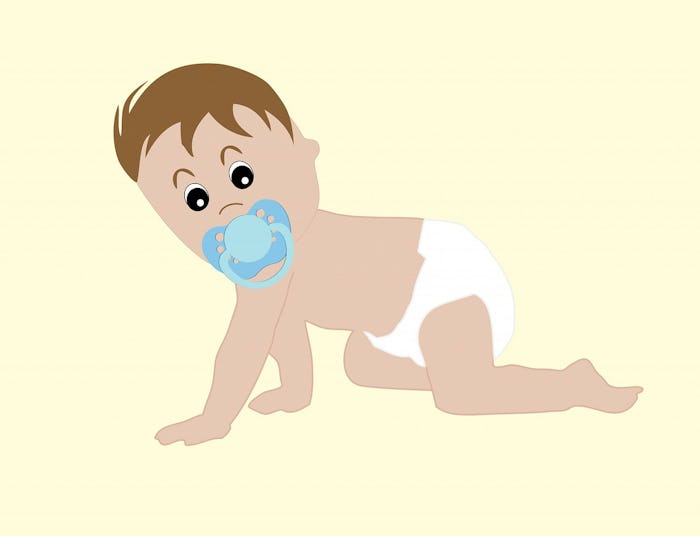Face it, not all dirty diapers are created equally. And no mother popped a baby out knowing everything they ever needed to know about raising a child, including knowing exactly what's in a baby's diaper and why. Unfortunately, knowing how to decode your baby's dirty diaper doesn't come naturally; it comes with one of two things: research, or experience.
Though the contents and reasoning behind dirty diapers can seem like one of the great mysteries of the world to a new mother, once you get the hang of what's happening in your little one's digestive system (and their diaper), you'll be well on your way to telling the difference between an alarming diaper. And one that's just par for the parenting course.
According to Parents, your baby's first set if dirty diapers will contain dark green or black poop. The publication noted that this should happen in the first 24 hours. If it extends for more than a day, it can signal a bigger problem within your baby's digestive health. After the joys of meconium pass through the diaper party, your child will transition through a few different colors of poop, ranging from green to yellow, and settling in on a brownish-yellow color that should stay consistent with your baby's healthy digestive capabilities.
If your baby's poop starts looking less like the stuff you're used to seeing, you may want to start paying attention. Anything from what your baby eats to what you eat (if you're breastfeeding), can signal a change in your baby's diaper contents.
According to Similac, paying attention to what your baby's eating can account for most of what you're going to see in that dirty diaper of theirs. Some foods like carrots, spinach, and foods that contain red dye can actually change the color of your baby's excrements drastically, which is why paying attention to what they're eating and what they're expelling is important. Though most of what you see in your baby's diaper is going to pretty normal, Kelly Mom noted that if you notice blood or mucus in your baby's stool, if your baby's urine becomes dark-colored, or if your baby's stool becomes black or white, you'll want to contact your baby's doctor right away. As with anything related to your child, if things seem out of the ordinary, when in doubt, it's always best to contact your healthcare professional.
